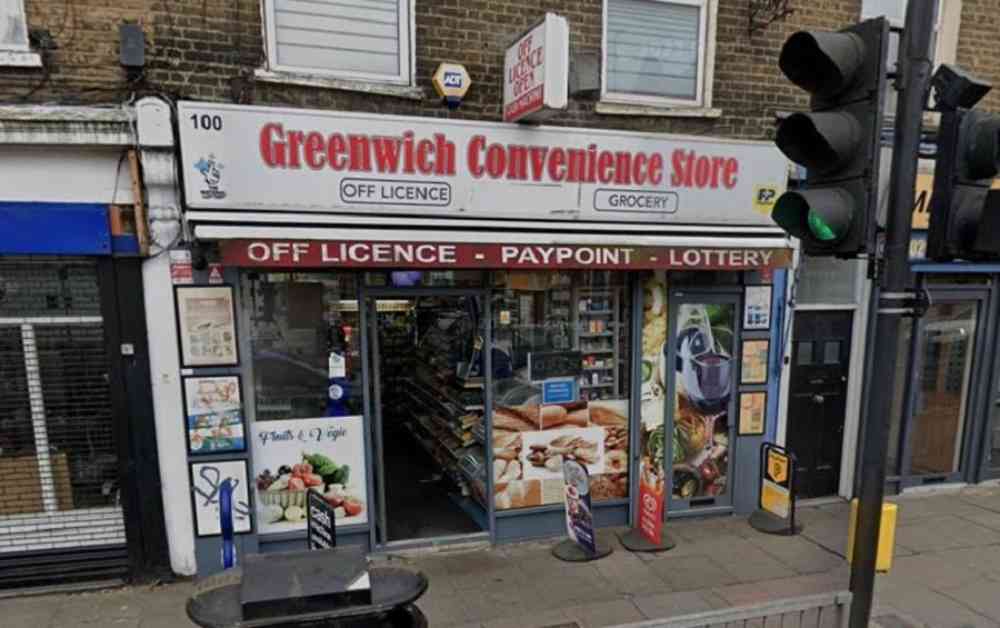Greenwich Vape Store Faces License Revocation for Selling to Minors
A Greenwich convenience store is facing the possibility of losing its license to sell alcohol after an employee was caught selling a nicotine vape to underage customers. The incident, which occurred at the Greenwich Convenience Store on Woolwich Road, has prompted the local council to review the shop’s license following a test purchase earlier this year.
According to council documents, a supervisor at the store sold a nicotine vape to two teenage boys on February 9. The boys, aged 16 and 17, were not asked for identification or any age verification before the sale was completed. The supervisor later admitted that the shop’s till system was not functioning properly at the time of the sale.
In an interview with council officers, the supervisor expressed remorse for his actions, referring to the incident as a “very big mistake.” He claimed that he had since installed a new till system that would remind staff to verify the age of customers for restricted items. The supervisor acknowledged his responsibility in the matter and stated that he was shocked by his failure to ask for identification from the underage customers.
The council also questioned the lack of entries in the shop’s refusals register, which is used to document instances where sales are denied due to age restrictions. The supervisor admitted fault in this area, attributing the oversight to busy times when he forgot to record the names of customers who were denied service.
As a result of the incident, council officers proposed a set of additional conditions to be imposed on the shop. These conditions include additional staff training on alcohol sales and the installation of a functioning CCTV system on the premises. The council emphasized the importance of maintaining a refusals log, which should be readily available for inspection by the police or authorized personnel.
The council’s sub-committee holds the authority to modify the shop’s existing alcohol license as they see fit, which could potentially involve temporarily suspending or revoking the license altogether. The Greenwich Convenience Store is currently licensed to sell alcohol from 8am to 11pm six days a week, with slightly reduced hours on Sundays.
The necessary changes to the shop’s license will be discussed at an upcoming council meeting to determine the appropriate course of action in response to the incident.
Implications of Selling Nicotine Products to Minors
Selling nicotine products to minors not only violates laws and regulations but also poses serious health risks to young individuals. Nicotine addiction can have long-lasting effects on the developing brains of teenagers, impacting their cognitive abilities and increasing the likelihood of substance abuse in the future.
By failing to verify the age of customers purchasing nicotine vapes, the Greenwich Convenience Store not only jeopardized its alcohol license but also put the health and well-being of underage customers at risk. It is crucial for retailers to adhere to age restrictions when selling restricted products to prevent harm to minors and uphold legal standards.
The incident at the Greenwich store serves as a reminder of the importance of strict adherence to age verification protocols to prevent underage access to harmful substances. Retailers must prioritize the safety and welfare of young customers by implementing robust measures to prevent underage sales and comply with regulatory requirements.
Ensuring Compliance and Accountability
In light of the incident at the Greenwich Convenience Store, it is imperative for businesses to prioritize compliance with age restrictions and accountability for their actions. The sale of restricted products to minors not only reflects poorly on the establishment but also undermines public trust in the retailer’s commitment to responsible business practices.
To prevent similar incidents in the future, businesses must invest in comprehensive staff training programs to educate employees on age verification procedures and legal obligations when selling restricted items. Regular monitoring and supervision of sales transactions can help ensure compliance with age restrictions and prevent unauthorized sales to minors.
The installation of CCTV systems in retail establishments can serve as a deterrent to underage sales and provide valuable evidence in case of regulatory investigations. By maintaining accurate records of sales transactions and refusals, businesses can demonstrate their commitment to upholding legal standards and protecting vulnerable populations from harm.
The Role of Licensing Authorities in Ensuring Compliance
Licensing authorities play a crucial role in enforcing regulations and holding businesses accountable for their actions. In the case of the Greenwich Convenience Store, the council has the authority to review and modify the shop’s alcohol license based on the findings of the incident involving the sale of nicotine vapes to minors.
By imposing additional conditions on the shop’s license, such as enhanced staff training and the maintenance of a refusals log, the council aims to prevent future violations of age restrictions and ensure compliance with regulatory requirements. The council’s sub-committee has the power to take decisive action, including suspending or revoking the shop’s license if deemed necessary to protect public safety.
Retail establishments must recognize the importance of maintaining a strong partnership with licensing authorities to promote responsible business practices and safeguard the interests of the community. By prioritizing compliance with age restrictions and implementing effective measures to prevent underage sales, businesses can demonstrate their commitment to ethical conduct and regulatory compliance.
In conclusion, the incident at the Greenwich Convenience Store highlights the critical importance of adhering to age restrictions and preventing underage access to harmful substances. Businesses must take proactive steps to ensure compliance with legal requirements and uphold their responsibility to protect vulnerable populations from harm. Licensing authorities play a vital role in enforcing regulations and holding businesses accountable for their actions, ultimately promoting public safety and responsible business practices.

